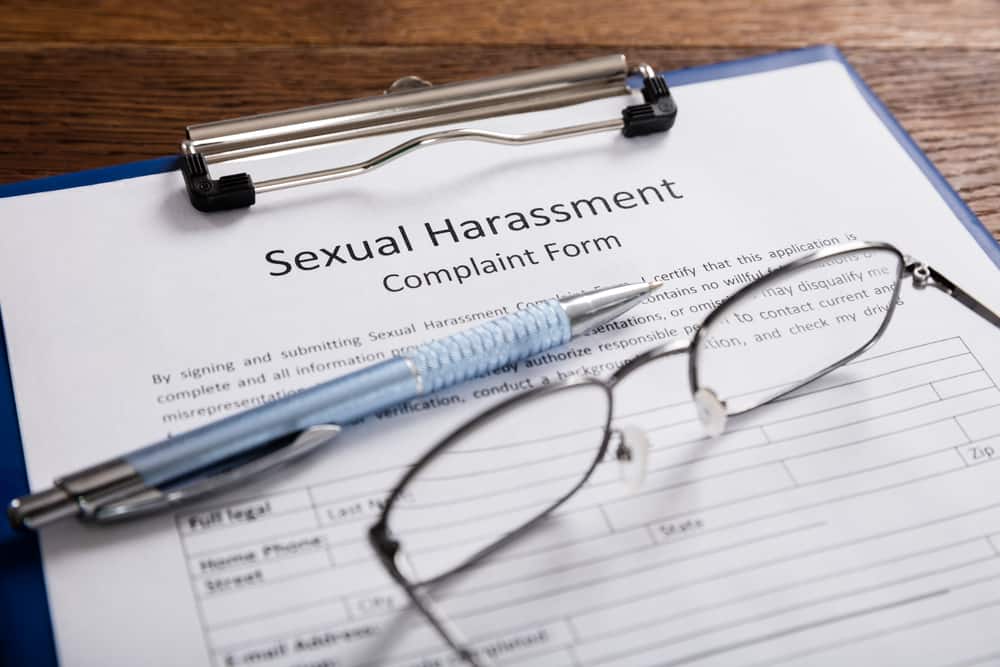Alaska, a state known for its unique landscapes and pristine wilderness, has relatively lenient abortion laws compared to other states in the United States. Unlike some states that have gestational limits or mandate waiting periods, Alaska has no set limits on access to abortion services, making it an exception in a highly controversial and politically charged area.
With abortions able to be legally performed at all stages of pregnancy as long as a licensed physician is involved, Alaska remains a region where women can exercise the full extent of their reproductive rights. These accessible services enable women from in-state and those traveling from other states to access safe and legal procedures, contributing to the ongoing discussion and debate surrounding reproductive rights on a national level.
However, even in Alaska, political dynamics can shift over time, and some lawmakers hope to revise the state’s abortion policies through a constitutional convention. This demonstrates that the conversation around reproductive rights is far from settled, and the status of abortion laws in Alaska may face future challenges as public opinions and legislative priorities continue to evolve.
Alaska Abortion Laws Overview
In Alaska, abortion laws protect a woman’s right to choose. The Alaska Supreme Court has held that the state constitution’s privacy provisions protect a pregnant person’s fundamental right to make reproductive decisions, including abortion.
As a result, Alaska does not require parental consent or notification for minors seeking abortions. This makes the state’s abortion regulations less restrictive compared to other states in the U.S.
Furthermore, there are a few key requirements for patients and providers in the state. Patients must have at least 30 days of residency in Alaska to access abortion services. A licensed medical doctor (M.D.) must also perform the procedure.
In terms of statistics, 1,260 abortions were provided in Alaska in 2017. It is important to note that this number does not account for patients who traveled from other states or Alaska residents who sought abortions elsewhere.
Alaska’s Legal Grounds for Abortion

Understanding Alaska’s position on abortion requires a look into both the U.S. Supreme Court’s decision on Roe v. Wade and the Alaska State Constitution. Additionally, decisions made by the Alaska Supreme Court have further shaped the legal landscape surrounding this topic.
Roe V. Wade and Alaska’s State Constitution
The landmark U.S. Supreme Court decision in Roe v. Wade (1973) recognized a woman’s constitutional right to abortion under the 14th Amendment. While this ruling is significant nationwide, Alaska’s State Constitution provides even stronger protections for abortion access.
In Alaska, the right to abortion is rooted in the state’s constitutional privacy clause (Article 1, Section 22). Abortion has been a legal medical procedure in the state since 1970, before the Roe v. Wade decision. The privacy clause ensures that the government cannot interfere with an individual’s choices regarding abortion unless there is a compelling state interest.
Alaska Supreme Court Decisions
The Alaska Supreme Court has played a critical role in interpreting and upholding the state’s privacy clause about abortion rights. In a 1997 ruling, the court stated that reproductive rights are fundamental and are encompassed within the individual’s right to privacy. They argued that any state law intending to restrict abortion rights must be narrowly tailored to serve a compelling state interest.
As a result of these decisions, some of the most common state-level abortion restrictions found in other states are not applicable in Alaska. These restrictions can include parental notification or consent requirements for minors, limitations on public funding, mandated counseling, waiting periods, and overly burdensome regulations on abortion facilities. With the current state of Alaska’s legal framework, abortion remains safe and legal for its residents.
Regulation and Requirements
Alaska abortion laws are guided by a combination of state and Supreme Court rulings, which impose various regulations and requirements on providing abortion services in the state.
Informed Consent and Ultrasound
Under Alaska law, a patient must receive state-directed counseling that includes information designed to discourage the patient from having an abortion. This counseling includes information about the abortion procedure, potential risks, and alternatives to abortion. Additionally, informed consent requirements may include the offer of ultrasound, allowing the patient to view the image of the fetus if they choose to.
Physician and Hospital Requirements
A licensed M.D must perform abortion procedures in Alaska. Physicians must adhere to Alaska’s legal abortion framework and are required to report details about each abortion they perform to the state medical board. This reporting ensures that the physicians comply with the legal requirements and maintain safe practices.
Parental Involvement for Minors
Minor patients seeking an abortion in Alaska have specific parental involvement requirements. If the patient is an unmarried, unemancipated woman under 18, parental consent or notification must be given as per Alaska Statute 18.16.020. Alternatively, a court may authorize the minor to proceed with the abortion without parental involvement through the judicial bypass process under Alaska Statute 18.16.030 if the minor is deemed sufficiently mature or is in her best interest.
Public Funding and Medicaid Coverage
As for public funding, Alaska is one of the states where Medicaid does provide coverage for abortions. However, restrictions may apply depending on the specific circumstances of each case. The extent of Medicaid coverage for abortion in Alaska is determined by the necessity of the procedure and factors such as the patient’s income, pregnancy stage, and other eligibility criteria set by the state.
Abortion Rights and Advocacy
Planned Parenthood and Reproductive Rights Organizations
In Alaska, abortion rights are supported by various organizations, including Planned Parenthood. Planned Parenthood provides reproductive health services and advocates for the legal right to access abortion. Alongside Planned Parenthood, other reproductive rights organizations work to provide resources and education on the importance of reproductive rights and ensure access to safe, legal abortion services.
Constitutional Right to Privacy and the Privacy Clause
In the United States, the right to privacy is highly debated regarding abortion rights. In Alaska, the state’s Supreme Court has held that the constitution protects a woman’s right to an abortion under the privacy clause. This constitutional protection means that any law attempting to restrict access to abortion must be narrowly tailored to serve a compelling state interest.
Alaska’s privacy clause extends to adult women and pregnant minors, making abortion access more widely available than in some other states. As a result, the state’s legislation regarding abortion access is shaped by this constitutional provision, ensuring that individuals seeking an abortion have the right to do so with reasonable privacy and without undue restrictions.
Despite the constitutional protections, some lawmakers continue to push for more restrictive abortion regulations or even an outright ban on the procedure. Advocacy groups, such as Planned Parenthood and other reproductive rights organizations, work to counter such attempts and protect the constitutional rights of individuals in Alaska.
Current Issues and Future Directions
Targeted Regulation of Abortion Providers (TRAP) Laws and Abortion Bans
In Alaska, abortion remains legal, but there have been ongoing debates surrounding the imposition of Targeted Regulation of Abortion Providers (TRAP) Laws and potential abortion bans. These laws and regulations aim to impose numerous restrictions and requirements on abortion clinics, which can make it increasingly difficult for them to operate and provide essential services to women in need.
As it stands, Alaskans’ constitutional right to an abortion is grounded in a 1997 ruling by the Alaska Supreme Court. However, the potential overturning of Roe v. Wade by the U.S. Supreme Court would not necessarily impact abortion access in Alaska directly, as the state’s laws would continue to protect this right.
Efforts to Amend the State Constitution
Some lawmakers in Alaska hope that a constitutional convention could allow them to challenge the current legal status of abortion in the state. Conservative legislators, predominantly Republicans, have been pushing for measures such as SJR4, which aims to amend the state constitution to reflect their anti-abortion stance better.
In addition, Alaska Gov. Mike Dunleavy, who is running for reelection, has expressed his intent to propose a resolution next session to address the abortion question with a constitutional amendment. This reflects the ongoing efforts by some lawmakers to reform the legal landscape surrounding abortion in Alaska.
Legislative Developments
Ongoing legislative developments in Alaska could impact the accessibility and legality of abortion moving forward. One example is HB206, a bill currently being considered by the state legislature that would address the issue of abortion in the statute. This legislation, combined with efforts to amend the state constitution, can change the landscape of abortion access in Alaska in the coming years.
While some areas of Alaska may experience more hostile environments due to the push for increased restrictions, it is crucial to note that the outcome of these legislative developments remains uncertain. Alaskans and advocacy groups will continue to closely monitor these developments and their potential impact on access to abortion services in the state.
FAQs
Is abortion legal in Alaska?
Yes, abortion is legal in Alaska. The state’s Supreme Court has held that the state constitution protects a woman’s right to an abortion, and any law that seeks to restrict that right must serve a compelling state interest and be narrowly tailored.
Is parental consent required for minors seeking an abortion?
No, in Alaska, parents do not need to consent to abortions or be notified that their child or teen is accessing that care. The Alaska Supreme Court has upheld this finding based on the state constitution’s privacy provisions. See the article above for more information about minors seeking an abortion without parental consent.
How many abortions have been provided in Alaska in recent years?
A: In 2017, there were 1,260 abortions provided in Alaska. It is important to note that not all abortions in the state were provided to Alaska residents, as some patients may have traveled from other states, and some Alaska residents may have traveled to another state for an abortion.
Are there any residency requirements for obtaining an abortion in Alaska?
Yes, patients seeking an abortion must have at least 30 days of residency in the state, and a licensed medical doctor (M.D.) must perform the procedure.
Is the right to an abortion in Alaska more protected than in other states?
The Alaska Supreme Court has interpreted the privacy provision in the state’s constitution to protect a pregnant person’s right to make reproductive decisions, including abortion, as a fundamental right. This makes the right to abortion more protected in Alaska than in some other states, where the interpretation of the U.S. Constitution does not extend as far.



